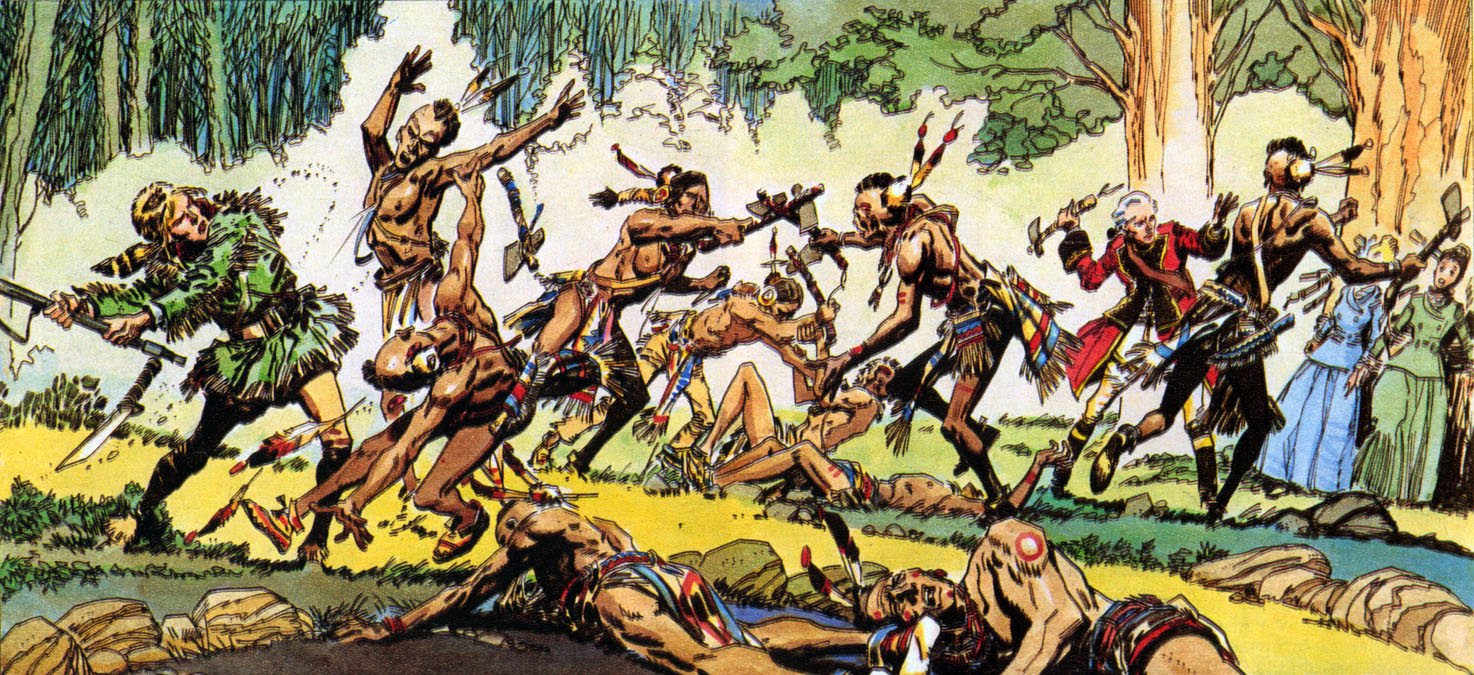 James Fenimore Cooper published The Last of the Mohicans in 1826, just 6 years after Walter Scott’s Ivanhoe. The first observation repeated throughout the evening is that Cooper’s book fit squarely in the same category as Scott’s book, that is, early 19th c. romanticism.
James Fenimore Cooper published The Last of the Mohicans in 1826, just 6 years after Walter Scott’s Ivanhoe. The first observation repeated throughout the evening is that Cooper’s book fit squarely in the same category as Scott’s book, that is, early 19th c. romanticism.
After Jordan’s winsome opening essay, the conversation quickly went into a passionate fracas about whether the book should be called racist, sexist, and/or ethnocentric. William seemed to give the winning discourse about which culture was presented in the best light: the Indians clearly were. Any talk of ‘barbarism’ or ‘savages’ must be understood in light of the fact that all of the white characters were presented as saps, buffoons, naive, or otherwise deficient. The Indian characters, even the villainous Magua, were presented with greater dimension and richness.
Credit is due to the book for establishing a literary vocabulary and tradition of Indian lore, making words like tomahawk, happy hunting ground, and Great Spirit familiar terms in the American conscience.
There were some who found considerable enjoyment in the book, usually after a period of adjusting to the high prose style of the 1820’s. However, a majority of the group expressed overall distaste, not only with the excessively florid narrative but with the flatness of most characters and outlandish details that stretched the limits of the suspension of disbelief. Yet again, these aspects are explained by the popular-level, American romantic style in which Cooper was writing.
To his credit, Cooper was doing what all great writers do in that he was challenging and pressing many assumptions and prejudices of his day. Having the beautiful Cora to be a mulatto, and showing the courage and honor of Ungas and Chingwichgook, and even suggesting a kind of spiritual Universalism in which white and Indian would be coinhabitants of the same eternal estate, were examples of this.
Everyone came expecting the discussion to run out of steam fairly quickly, but that was not the case. And as usual, every man found new appreciation for the book, and a respect for its place in American fiction.
The book for December, is Philip Roth’s American Pastoral. And don’t forget the book exchange.
The book for January will be Don Delillo’s White Noise.
